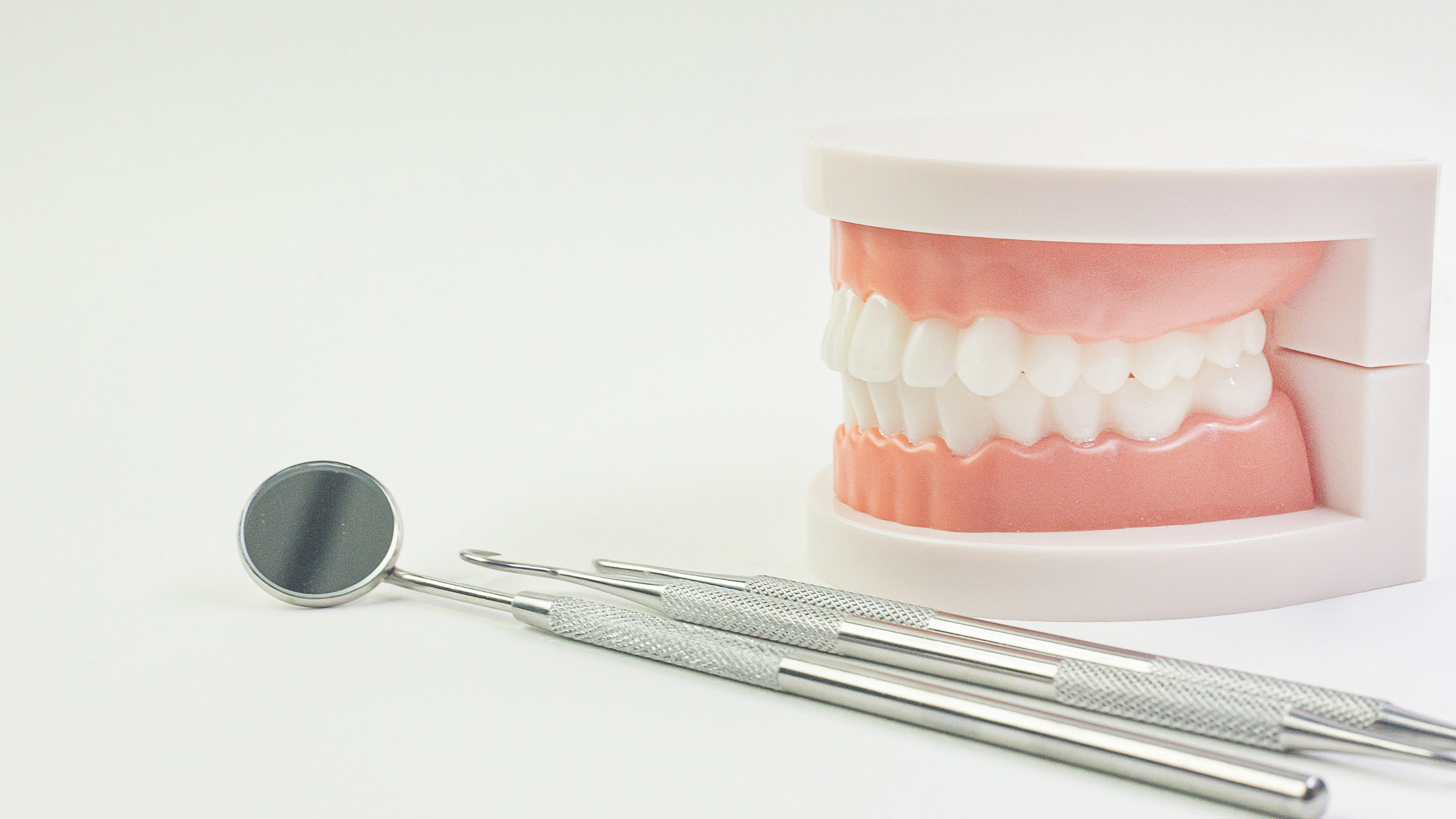
30 Sep As National Gum Care Month Ushers in Fall, It’s Time to Focus on Stopping Teeth from Falling Out
According to the University of Pennsylvania’s Penn Dental Medicine, “Not counting wisdom teeth, the average person aged 20 to 39 is missing one tooth, the average 40- to 49-year old is missing 3.5 teeth, and those aged over 60 are missing 8 teeth – and this is usually because of gum disease.” Over 42% of Americans, or about 67 million people, suffer from varying degrees of gum disease. Because September is National Gum Care Month, and with Halloween treats right around the corner, let’s talk about this “unseen epidemic.”
What Is Gum Disease?
Gum disease is caused by bacterial infection and takes the forms of gingivitis or periodontitis. Gingivitis is a milder and easily treatable condition, usually identified by sensitivity, pain, and, most notably, red, puffy, bleeding gums. However, it also represents the beginning stages of periodontitis, which is a more complex problem. With proper diagnosis and care, gingivitis can be reversed relatively quickly. Patients who visit a dentist and adhere to the treatment plan provided often see dramatic reductions in the condition within two to three weeks. Left untreated, gingivitis can advance to periodontitis, a more dangerous type of gum disease with father-reaching consequences.
Periodontitis is more serious than people may think. Periodontal disease is gingivitis accompanied by bone loss and loss of attachment. As it progresses, patients will experience rapid gum recession followed by eventual tooth loss. When gingivitis advances to periodontitis, bone loss occurs around the tooth. When teeth become very loose, they cause deep pockets in the jaw bone around the site, infection, and eventual tooth loss. In fact, this condition is the number one cause of lost teeth. Periodontitis is a concern for several reasons beyond tooth loss . Cosmetically, people with unhealthy or missing teeth tend to look older or more infirm. Functionally, the loss of teeth impacts eating habits, socialization, and physical health. Gum disease is systemic and affects the way your body reacts to bacteria. Without treatment, periodontitis lowers a person’s protection against other inflammatory conditions such as heart disease, diabetes, and autoimmune complications.
Fighting Gum Disease
As with any other health risks, active prevention and early detection are the best means to avoid longer-term ramifications. While periodontitis requires more extensive work and time, getting gingivitis under control is a simpler and easier way to avoid permanent damage to one’s smile.
- Floss before brushing, and brush your teeth using fluoride toothpaste twice a day for at least 2 minutes, covering all four quadrants for 30 seconds.
- Dietary habits and the presence or lack of vitamins will influence your oral health. Eating healthy foods goes far in helping the body fight or prevent infection.
- Avoid acidic beverages like orange juice and carbonated beverages, which can erode the enamel on your teeth.
- Saltwater rinses performed two to three times daily can help heal the gum tissues inflamed by gingivitis while reducing the presence of harmful bacteria or food particles lodged between the teeth. Add a ½ teaspoon of salt to a small glass of warm water and mix. Swish the solution around your mouth for 30 seconds, spit, and then brush your teeth.
- Over-the-counter antibacterial mouthwashes are available and can help, but we always advise that you consult with your dentist for their recommendations.
- Be sure to schedule routine dental appointments and cleanings every 6 months. They may suggest using additional instruments for cleaning bacteria from your teeth and gums.
- Check for any warning signs such bleeding, soreness, persistent bad breath, or a sour taste in your mouth. If you notice any of these symptoms, it’s time to visit the dentist.
We at the Blende Dental Group are committed to ensuring that our patients receive the utmost care, whether they visit our offices, require home visits, or need special care because of special needs. There are no patients and no conditions we can’t treat. In the spirit of National Gum Care Month, we encourage anyone who’s put off regular oral care – for any reason – to contact us for a consultation.













